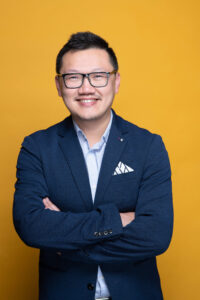
Flinders university researchers are embarking on a national survey with the community to discover what hot button issues and big problems matter most to Australians.
The Wicked Problems Survey is providing an unprecedented opportunity for Australians to decide which issues leading researchers should prioritise in their communities.
Armed with the collective results, an assembled group of Flinders University researchers will set a new strategic direction and deploy the breadth and depth of their expertise to help solve the identified problems.
Led by Chief Investigators Professor Ian Goodwin-Smith, Professor Timothy Cavagnaro, Professor Raymond Chan, Professor Svetlana Bogomolova and Associate Professor Selina Tually, the group of experts running the survey won't be limited in the themes or issues they seek to tackle.
To kickstart this process, the researchers will invite South Australians to participate in a number of community conversations across metropolitan and regional areas. Participants will offer perspectives on the pressing issues within their communities, and the gathered data will be analysed to identify a shortlist of significant concerns which require new thinking.
The focus groups and drop-in sessions held in SA and the issues they identify will lay the groundwork for a comprehensive national survey tailored for 30,000 Australians across all states and territories.
Deputy Vice-Chancellor (Research) Professor Raymond Chan says Flinders University is proud to undertake research that makes a positive difference to the community it serves.

"The Wicked Problems Survey provides a platform for direct engagement between experts and the public to inform our research priorities moving forward."
"Not all heroes wear capes, and the fearless researchers at Flinders are ready to identify and tackle large scale issues that matter most to Australians. No issue will be too big or small, and we invite a frank public engagement on issues of concern to set the broad parameters for our future research agenda."
"This survey process will pave the way for subsequent research activity after we determine which issues need to be addressed across many Australian communities, so Flinders experts can help answer the questions that matter and potentially identify problems that haven't been addressed previously."
Chief Investigator Professor Ian Goodwin-Smith says the researchers will collaborate with both government and industry to provide data that can inform future decision making in participating communities.
"The first step is to deliver a rigorous, representative survey and dataset to enable evidence-informed decision making around Flinders key research priorities moving forward, so our experts can set the future direction of their research to address these generational issues."
"The survey results will then inform a peer-reviewed journal publication that enables our researchers to develop and implement their future strategy."

Investigator Professor Timothy Cavagnaro says the researchers need to know the burning questions to seek out answers.
"And that is what the Wicked Problems survey seeks to ask; that is, what Wicked Problems matter most to the people of Australia."
"When the results of the survey come in and are analysed, we can then set some of the best and brightest minds in the nation to solving the Wicked Problems of our time."
Professor Simone Ulalka Tur, Pro Vice-Chancellor (Indigenous) at Flinders University says this survey will open the door for a subsequent and deeper opportunity for Aboriginal and Torres Strait Islander people to determine and voice research priorities that have direct impact on the lives and wellbeing of their community.
"Flinders University will continue to work in partnership with Indigenous communities on issues that are of local, national and global significance."






